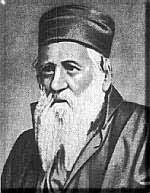by Rav Yosef Carmel, yeshiva.co, translated by Hillel Fendel
We have dealt in the past with the amazing phenomenon of Israel's arousal to return to its Land after so many centuries of exile and distance. This was an arousal "from below," here on earth, expressing the Divine charge that the time had come to return to our beloved Land.Let us now discuss this topic from a different angle, one that is connected with the month that begins this Sunday – Elul, the month of repentance, the month of mercy and forgiveness. Elul is an acronym for "I am for my beloved, and my beloved is for me;" it is a month of Israel's return to its Father in Heaven.
Speaking of which, is our Redemption guaranteed? Or is it dependent on whether or not we do national Teshuva [repentance]? This question is discussed at length in the Talmud (Sanhedrin 97b et seq.), which states:
Rav said: "All of the ends have come, and now it is dependent only upon teshuva and good deeds." Shmuel said: "It is enough for a mourner to experience his mourning."
The Tannaim also dispute this, as R. Eliezer said: "If Israel does teshuva, they will be redeemed, and if not, they will not be redeemed." R. Yehoshua said to him, "If not, they are not redeemed?? Rather, in such a case G-d will bring upon them a king whose decrees will be as grave as those of Haman, and they will then do teshuva and return to the good path." … R. Eliezer was silent and did not respond.
Much ink has been spilt by many scholars of various periods to try to explain this topic. Let us concentrate at present on the approach of Rabbi Yehuda Alkalai, who was probably the man who had the greatest influence upon Binyamin Ze'ev Herzl, whether directly or indirectly. (Rav Alkalai was born in present-day Bosnia in 1798, and immigrated to the Holy Land at age 11. He received rabbinic ordination from the Pele Yoetz, and then returned to Europe, where he served as a rabbi not far from Belgrade, encouraging Jews to return to their national homeland. In 1874 he returned to the Land, and died four years later. He is buried on the Mt. of Olives.)
Rav Alkalai's approach to this matter is unique. The others define the teshuva that is required as a repentance from bad deeds and violations of negative Torah commandments, and a commitment to do good things and fulfill the Torah's positive commandments. But R. Alkalai sees this return to Torah observance as only the second stage, whereas the first stage is where the Nation of Israel does literal teshuva, from the same root as "return" – and returns to its Land!
That is, the "return" that is a prerequisite for Redemption is not that of individuals returning to Torah observance, but rather a national return to Eretz Yisrael. Rav Alkalai sees the first five verses of Deut. 30 as a clear indication and proof of his approach:
"… among all the nations to which Hashem your G-d drove you, and you will return unto Hashem and listen to Him in everything he commands you today... And G-d will … have mercy upon you and He will return and gather you together from all the nations in which He dispersed you, [even from the ends of the earth or heavens] to the Land that your forebears inherited, and you will inherit it…"
That is, the dispersed and exiled nation will arouse to general repentance and will seek to return to the Holy Land. The next stage is that G-d will ingather them together in the Land, no matter how far and wide they are dispersed. This will be a unique display of Divine providence and aid for the ingathering of the Land's children in joy.
And then will come the final stage: "G-d will circumcise your heart and that of your descendants, to love Hashem your G-d with all your heart and soul… And you will return [repent] and obey G-d and perform all His commands…" (ibid. verses 6-8). Only at this stage will there take place individual repentance, where the members of the Jewish nation keep the entire Torah on the individual level as well.
We see coming true before our eyes the national arousal bringing to practical fruition of G-d's will. This leads naturally to the approach of Rav Kook, who renders the national arousal a religious arousal. He wrote: "The arousal of the will of the nation in general to return to its Land [as Rav Kook saw happening around him]… truly has a light of teshuva to it."
Let us pray that we will merit to see very soon with our own eyes the fulfillment of all three stages of Return enumerated above.

No comments:
Post a Comment